Welcome to the PAR POS API Portal
PAR POS is a SOAP-based API service. All of the data is structured via XML, but you can consume the WSDLs (Web Service Description Language) for each PAR POS Service and generate classes using a WSDL to Class Generator for the language you are programming in.
Using Our API
Release Notes
Web Services
The web services available on the PAR POS API are separated by focus and contain methods you can call to get or post data for a location.
Services
Service
Calls
Summary
HouseAccounts
Provides data on house accounts, including their charges and payments.
Labor2
Provides labor functionalities like the ability to save and retrieve labor schedules, as well as retrieve shifts recorded by the Register at a location.
Ordering
Provides ordering functionalities like the ability to calculate, submit, and retrieve orders, update or retrieve item availability, and many more. Additionally there is a GetMasterTerminalStatus call which checks that the Primary Register is online.
Sales2
Provides data on the sales at a location, namely Deposits, Orders, Tills, and the current business date of the Register.
Settings
Provides data about the configuration Settings for a single location.
Settings2
- DeleteBusinessHours
- DeleteDestinations
- DeleteExceptionDates
- DeleteItems
- DeletePriceChanges
- DeleteTaxes
- GetBrands
- GetBusinessHours
- GetCharities
- GetDestinations
- GetEmployees
- GetFutureOrderingOptions
- GetItems
- GetJobs
- GetKitchenQueues
- GetLastModifiedTime
- GetMenu
- GetOnlineOrderingMenuOptions
- GetPermissions
- GetPriceChanges
- GetPromotions
- GetSecurityLevels
- GetSettings
- GetTables
- GetTaxes
- SaveBusinessHours
- SaveEmployees
- SaveDestinations
- SaveExceptionDates
- SaveItems
- SavePriceChanges
- SaveTaxes
- UpdateItemPrice
Provides data about the configuration Settings for a single location, with enhanced APIs. There are few additional APIs on top of the ones already existing in Settings.svc to better manage configuration settings.
Endpoints And WSDLs
The endpoints that you hit to access the PAR POS API are dependent on what server your group and location is on.
For example, if your restaurant is on production server Admin 2 and you need to call the method SubmitOrder on the Ordering service, your endpoint should be:
If you are testing integration on the PAR POS development server APIINT for that same SubmitOrder method, your endpoint would be:
For example, if your restaurant is on production server Admin 2 and you need to call the method SubmitOrder on the Ordering service, your endpoint should be:
https://api2.brinkpos.net/Ordering.svc
If you are testing integration on the PAR POS development server APIINT for that same SubmitOrder method, your endpoint would be:
https://api-apiint.brinkpos.net/Ordering.svc
Service
HouseAccounts
Soap Actions
SOAP Actions identify operations and are used by the services to execute those operations.
The following is a table of SOAP Action formats for each service to determine the SOAP Action for the call needed. You can include this in the Headers of your request.
The following is a table of SOAP Action formats for each service to determine the SOAP Action for the call needed. You can include this in the Headers of your request.
SOAP Actions
SOAP Action Format
HouseAccounts
- http://www.brinksoftware.com/webservices/houseaccounts/IHouseAccountsWebService/{{InsertCallName}}
Kitchen
- http://www.brinksoftware.com/webservices/kitchen/v1/IKitchenWebService/{{InsertCallName}}
Labor2
- http://www.brinksoftware.com/webservices/labor/v2/ILaborWebService2/{{InsertCallName}}
Ordering
- http://www.brinksoftware.com/webservices/ordering/20140219/IOrderingWebService/{{InsertCallName}}
Sales2
- http://www.brinksoftware.com/webservices/sales/v2/ISalesWebService2/{{InsertCallName}}
Settings
- http://tempuri.org/ISettingsWebService/{{InsertCallName}}
Settings2
- http://www.brinksoftware.com/webservices/settings/v2/ISettingsWebService2/{{InsertCallName}}
Recommended Tools
For testing purposes, we recommend using free tools like SoapUI or Postman to make test calls.
With SoapUI, you can create a SOAP-based project by consuming a WSDL from one of the WSDL URLs listed above.
It will generate sample requests for the calls within a given service so that you can visualize the format of the request and response returned.
You will be able to add HTTP Web Request Headers (if necessary for your call) and specify the endpoint that you want to hit.
Note: All fields within the sample requests will appear as "Optional" by default, but that is not necessarily the case.
With Postman, you can make POST calls to your specified endpoint.
You will have to provide a raw request body and include all necessary HTTP Web Request Headers such as tokens, Content-Type ("text/xml"), and SOAPAction (e.g. "http://www.brinksoftware.com/webservices/sales/v2/ISalesWebService2/GetOrders").
We usually recommend that you copy/paste the sample request generated through SoapUI into the body of your Postman request.
With SoapUI, you can create a SOAP-based project by consuming a WSDL from one of the WSDL URLs listed above.
It will generate sample requests for the calls within a given service so that you can visualize the format of the request and response returned.
You will be able to add HTTP Web Request Headers (if necessary for your call) and specify the endpoint that you want to hit.
Note: All fields within the sample requests will appear as "Optional" by default, but that is not necessarily the case.
With Postman, you can make POST calls to your specified endpoint.
You will have to provide a raw request body and include all necessary HTTP Web Request Headers such as tokens, Content-Type ("text/xml"), and SOAPAction (e.g. "http://www.brinksoftware.com/webservices/sales/v2/ISalesWebService2/GetOrders").
We usually recommend that you copy/paste the sample request generated through SoapUI into the body of your Postman request.
